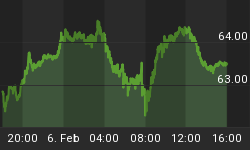
Regular readers will know I am in the inflation, possibly hyperinflation camp; but there are those that think the future is more likely to be deflationary. In the main this is the view of neoclassical economists, Keynesians and monetarists, who generally foresee a 1930s-style slump unless the economy is stimulated out of it.
Rather than repeatedly go into the errors of their ways, we must accept that they are in charge. They have decided that prices must not fall, and they see moderate price inflation as a necessary stimulant to business: this is the reasoning behind Helicopter Ben Bernanke's defining statement, when he made it clear that central banks could spray the economy with endless fiat money if need be.
Given this determination to stop prices falling, worries that the outlook is deflationary are unlikely to be realised. But there is a second group of commentators which believes that in a slump there will be an unstoppable credit contraction as banks are forced to foreclose on failing businesses. This, they say, will lead to a mad dash for cash to pay off debt, leading to fire-sales of assets as credit contraction spreads to otherwise sound businesses. The imperative to pay down debt will overwhelm central banks' attempts to replace it with cash.
The error here is to misunderstand where we are in this sorry tale. The belief common to all deflationists, that the developed world has so far avoided a severe economic contraction, is wrong. The fact that this is not often recognised must be blamed on the irrelevance of nearly all government statistics. Not only are they self-serving, but they do not allow for the increasing meaninglessness of government money. The only hard statistics are unemployment, which despite official attempts to water them down, cannot conceal the fact that there has been a slump since the banking crisis.
The banking crisis marked a sudden increase in consumer preferences in favour of money, assuredly egged on by banks who switched almost overnight from risk-tolerant to risk-averse. This is why GDP numbers in most major countries took such a heavy knock, reflecting money being withdrawn from economic activity. That was the event deflationists are worrying about today.
So deflationists are forecasting an event that happened five years ago and their fears have already been disproved by massive monetary intervention. That is not to say the slump is over: far from it. Current indications are that things are about to get worse everywhere. But the nightmare cycle of falling asset prices becoming self-feeding and a dash for cash has already been prevented.
So successful was the Fed leading other central banks to save the world in 2009 that the precedent is established: if things take a turn for the worse or a systemically important financial institution looks like failing, Superman Ben and his cohort of central bankers will save us all again.
Call it kryptonite, or failing animal spirits if you like. It is closer to the truth to understand we are witnessing the early stages of erosion of confidence in government and ultimately its paper money. Ordinary people are finally beginning to suspect this, signalled by the world-wide rush into precious metals last month.















